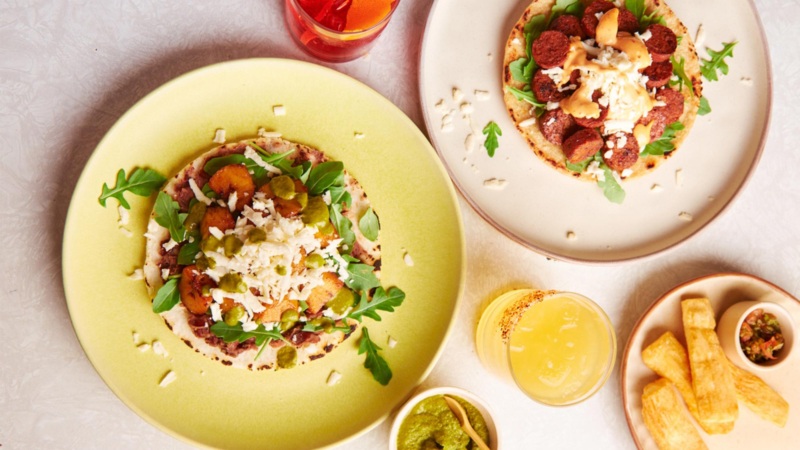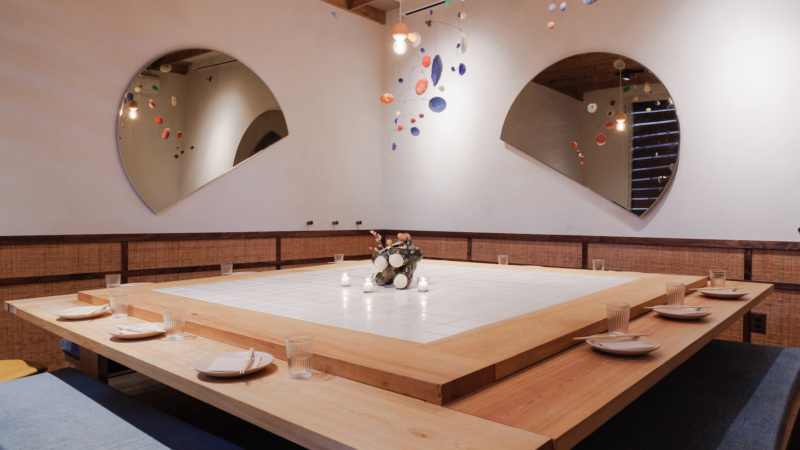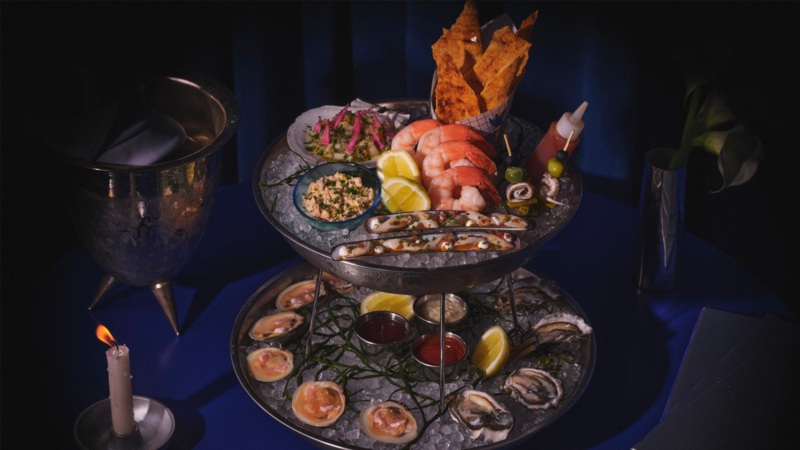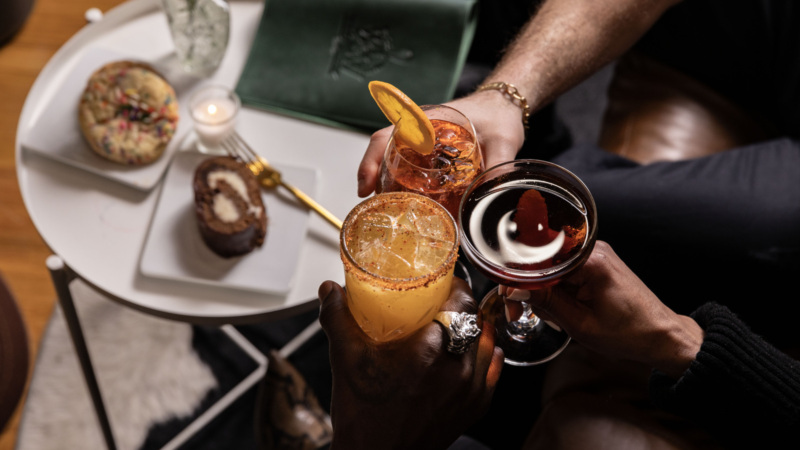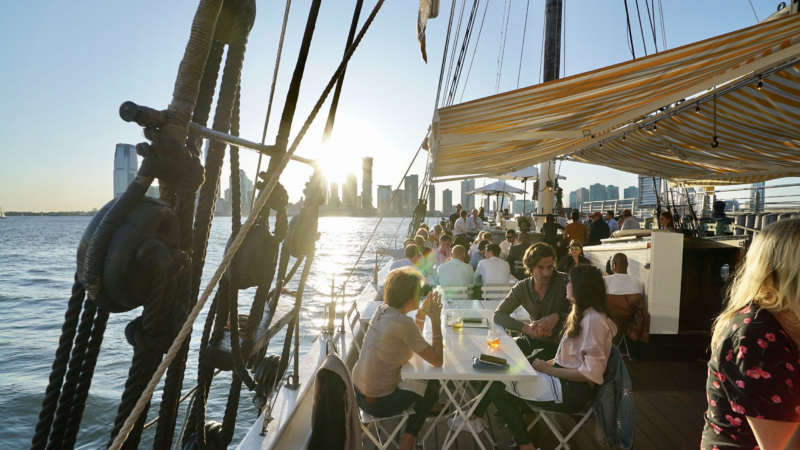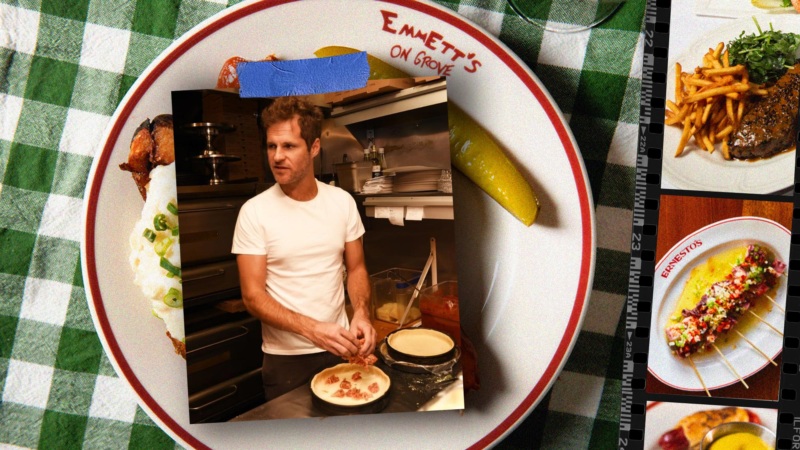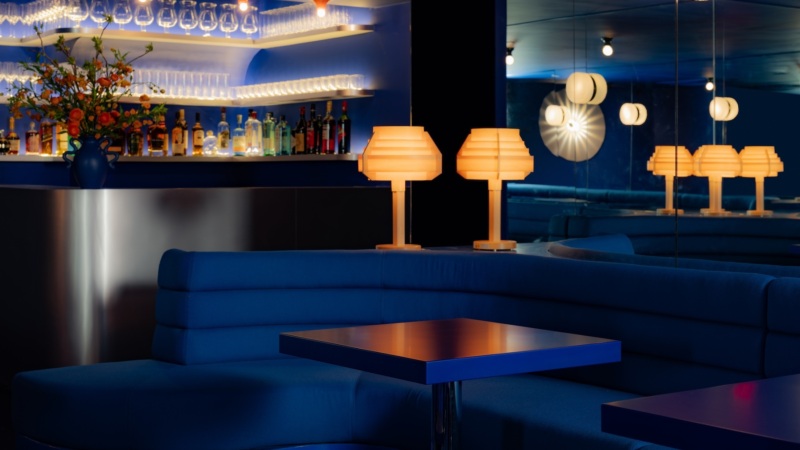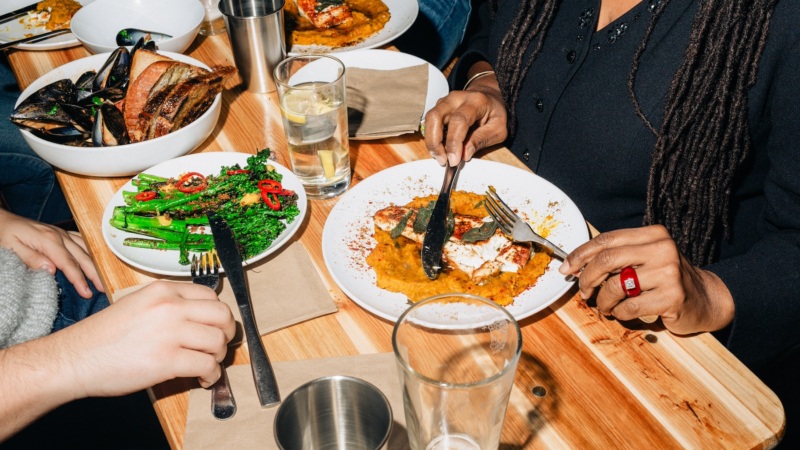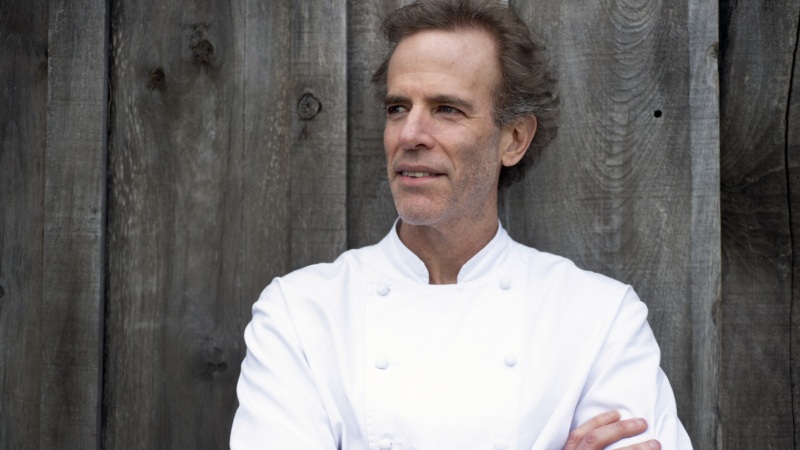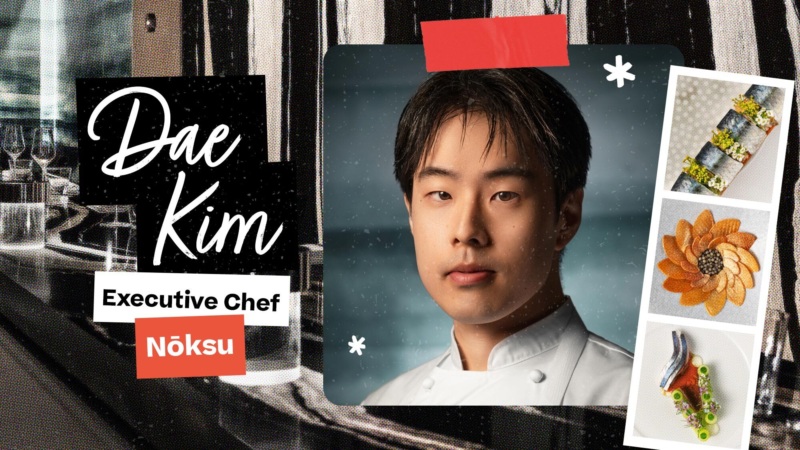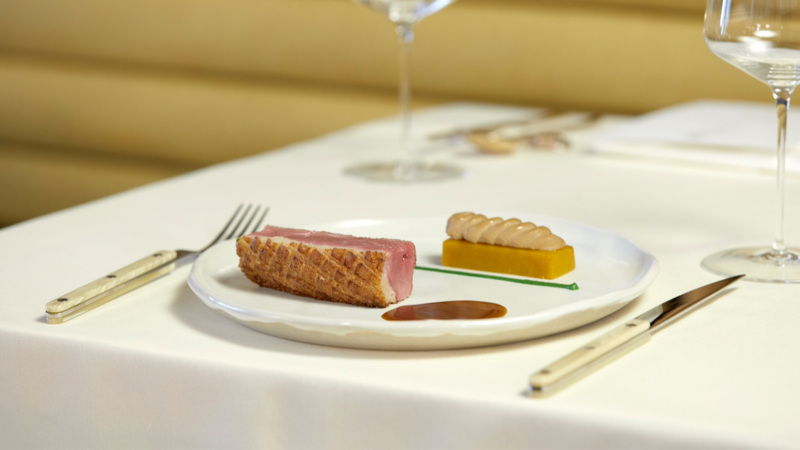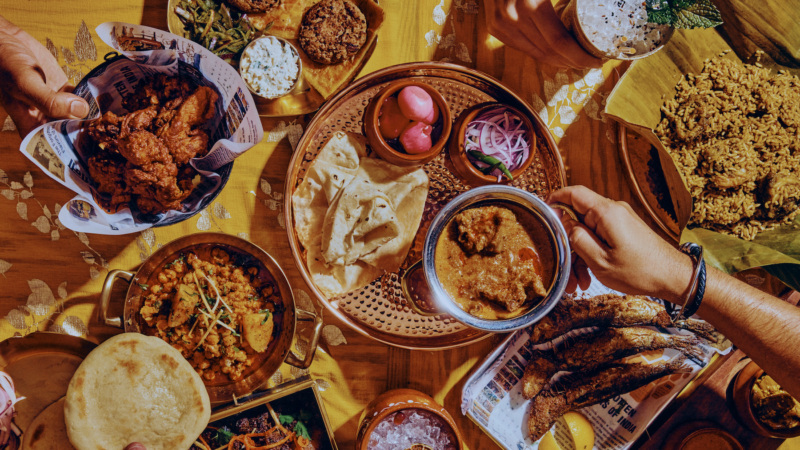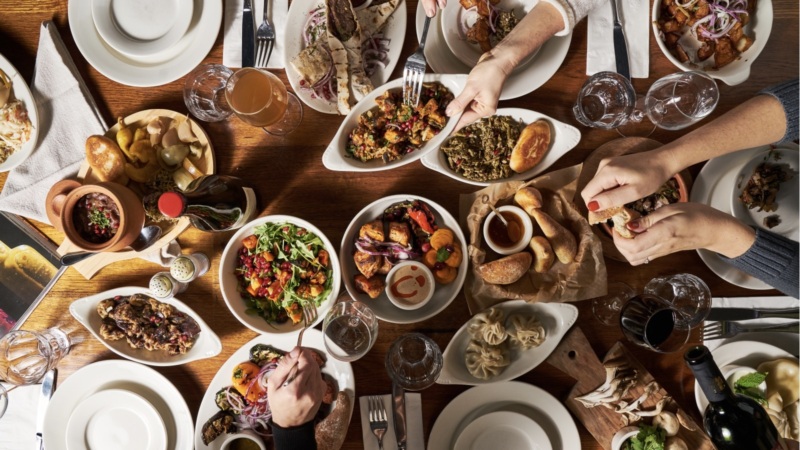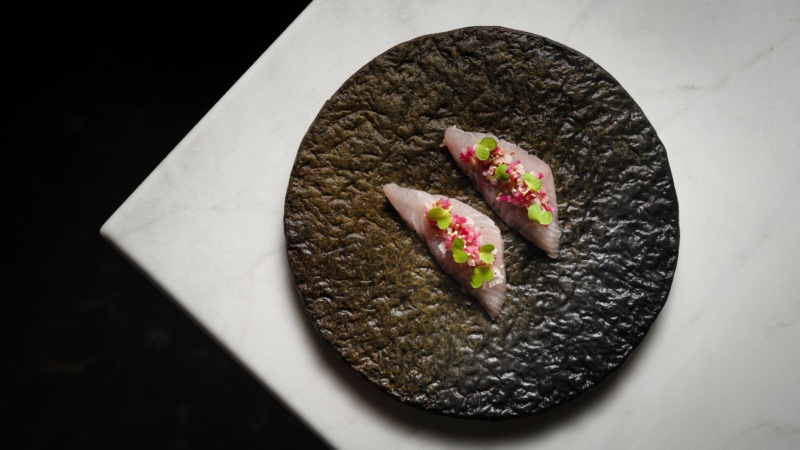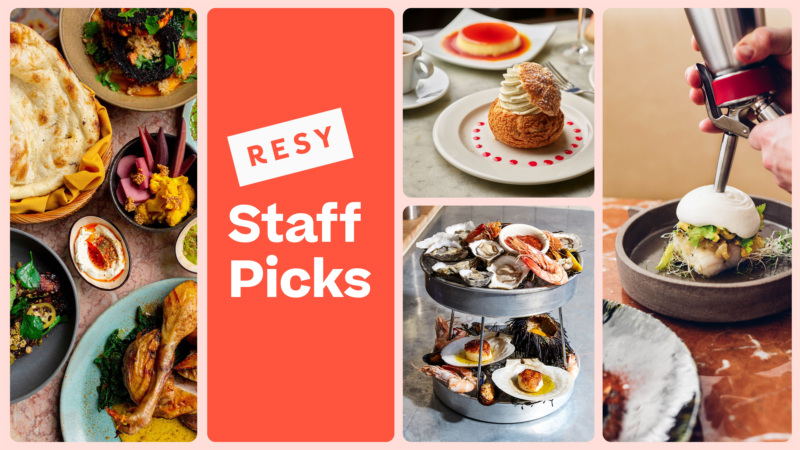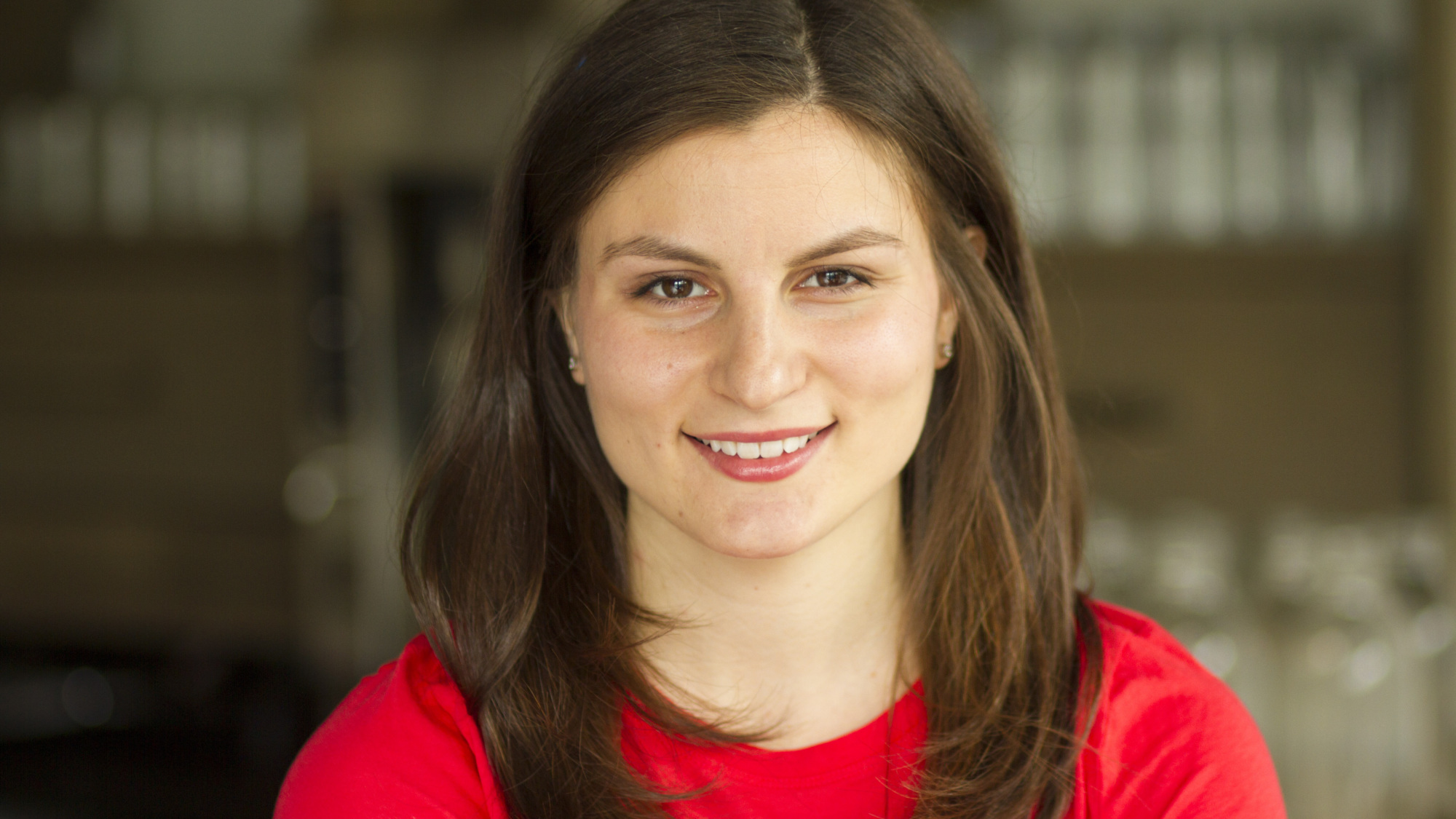
Emma’s Torch Founder Kerry Brodie on Empowering Refugees Through Restaurants
Emma’s Torch, situated on a leafy, quiet corner in Carroll Gardens, Brooklyn, is not just a restaurant: It’s the epicenter for a culinary education program for refugees, empowering them to build a future for themselves in the industry and in their new communities.
Founder Kerry Brodie didn’t come up in restaurants. In fact, it was only when Emma’s Torch was in its nascent stages, in 2018, did she first set foot in a professional kitchen, trailing chefs during her externship with the Institute of Culinary Education.
“When I decided that I was going to really see if Emma’s Torch could work, I enrolled in culinary school,” Brodie says. “So while I don’t have anywhere near the formal level of training that our students and our culinary staff have, at least I know which end of the knife to use,” she jokes.
But like the graduates of Emma’s Torch — about 150 of them to date — Brodie is out to prove that passion and tenacity can lead to success: The pilot program has grown into a restaurant in Carroll Gardens, a cafe at the Brooklyn Public Library, and a catering division, and will expand to the D.C. area later this year as well.
Resy recently sat down with Brodie to reflect on the past four years, and why the mission of Emma’s Torch is more important than ever.
Note: This interview has been lightly edited for length and clarity.
Resy: What prompted the idea for Emma’s Torch?
Brodie: I never thought I’d be working in [the restaurant] industry at all. I was working in public policy at the Human Rights Campaign and also volunteering at a homeless shelter. And that’s where the idea started to come together. It wasn’t like I had one “eureka” moment; rather it was these series of conversations I was having with women at the shelter, realizing that when you were chatting about food, it was a conduit for a conversation about memories from home or experiences that you might have shared, even if our lives looked so remarkably different.
At the same time, I was reading articles about the gap in the labor market and how restaurants were really looking to find staff members. And this seemed like an opportunity where we could empower people to access these jobs, but also could help so that everybody would see the newest arrivals to our community as a real resource and as a group of people who can benefit everyone.
How did you start to build Emma’s Torch?
This idea came together over the course of six months to a year. I was really fortunate that a lot of people were willing to chat with me about it, to give me advice and feedback, to help me pressure test it a bit before I even decided that, yes, I was going to pursue it.
What do you mean by “pressure test”?
So even before Emma’s Torch had a name, before I even thought, OK, I’m really doing it, I would talk to any expert in the field, “field” meaning the restaurant industry or people who had worked in refugee resettlement. And the question that I would ask them is not just, “Do you think this is a good idea or not?” but, “Does this meet the needs of the moment? Is this going to help with problem-solving?” That was something that I was really focused on. I didn’t want to just come in and say, this is the solution, without truly having people give that feedback.
When it came time to launch the organization, I started out with a very small pilot program where we did three weeks of classes, [culminating with] an event at a kitchen space in Brooklyn. That was really the first time we tested the idea: Could we do training classes that would end in some sort of public-facing food gathering? It was the experience of that tiny little pop-up event that led us to be able to take on our six-month lease in Red Hook [in Brooklyn] and then ultimately to open the restaurant space, which opened the floodgate. We brought on so many new partners and were able to open at the library and to do catering. It’s been quite a journey since then.
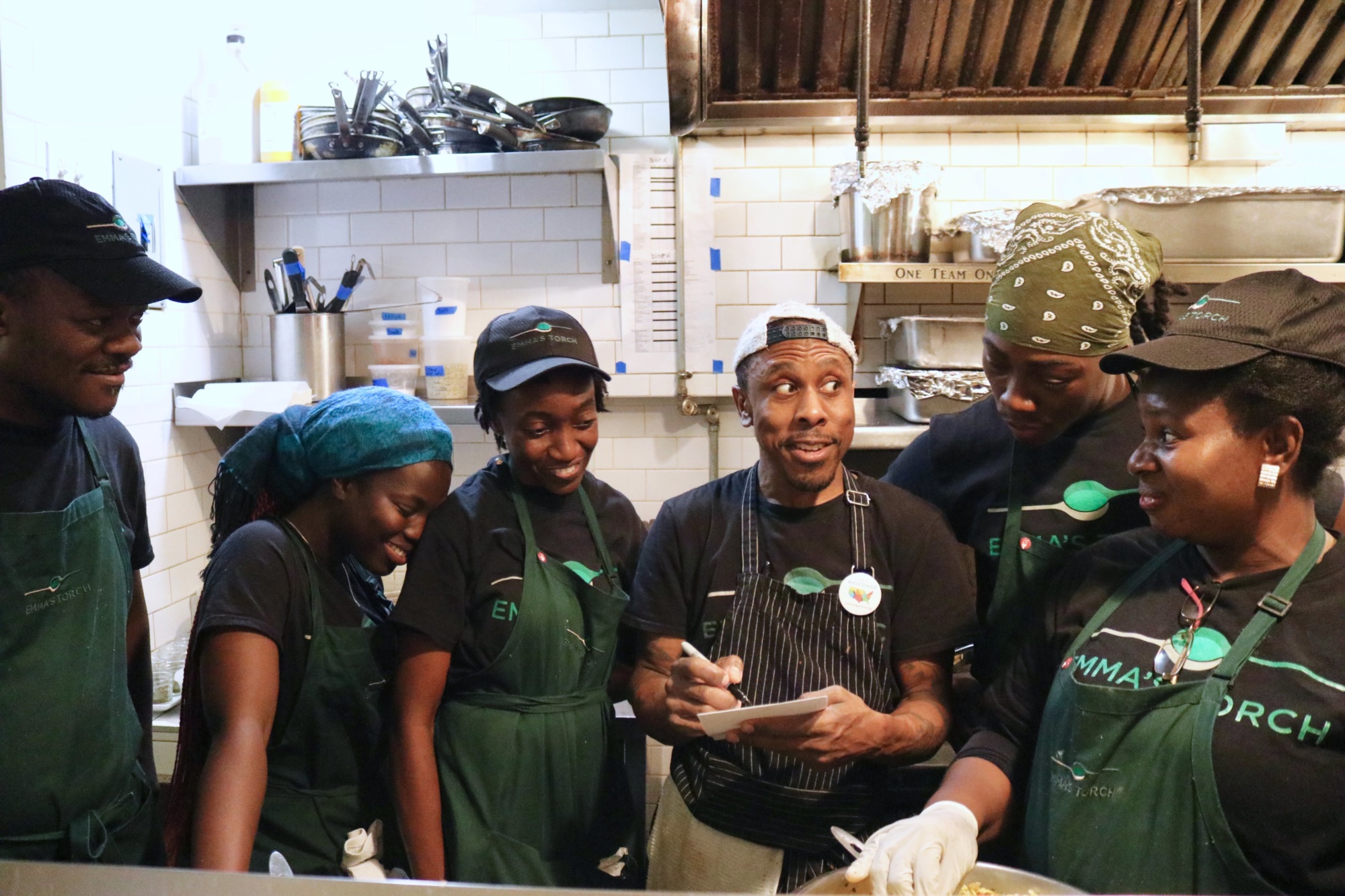
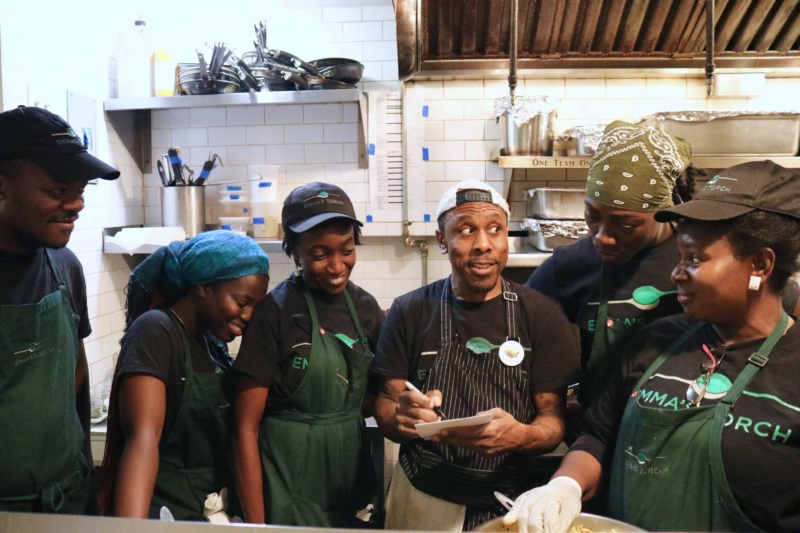
How did you come up with the name, Emma’s Torch?
I am a big Jewish history nerd, and grew up learning about Emma Lazarus, who was an early advocate for refugees. She wrote the poem on the base of the Statue of Liberty (“give me your tired, your poor, your huddled masses yearning to breathe free”), and we wanted our work to be an extension of her vision of an America whose values were welcoming in the stranger.
So, how does the program work?
What we’re looking for when we’re selecting [students] is somebody who’s excited to be there. You don’t have to have ever worked in a restaurant before. Many of our students have never even had the opportunity to work outside the home. And so we’re looking for that light in their eye and excitement about culinary and about the opportunity to join this workforce.
Our program is 10 weeks long and it’s a combination of on-the-job training and classroom-based training. Students have about five weeks of what [are essentially] intensive boot camps: they’re learning basic math skills; basic culinary skills; the language of the kitchen. And then for the second five weeks, they’re rotating [through] our different businesses. So they’ll spend time being a barista at our cafe at the Brooklyn Public Library, working in the restaurant in Carroll Gardens, and seeing what production for catering looks like.
And that way, by the time they graduate, they also have a sense of what jobs are exciting to them. What do they enjoy doing? We also take our students on a lot of field trips, everything from mock interviews with our partners at Union Square Hospitality Group (Ci Siamo, Gramercy Tavern, Union Square Cafe) to visiting a small tea shop or an urban farm, or different parts of the industry that they might have not been exposed to before.
… We get to change a conversation around what it means to be a refugee when you’re coming to Emma’s Torch and having a delicious meal.— Kerry Brodie
And through all of this, our students are earning $15 an hour, whether they’re on a field trip or in an English class or in a math class, or working in the restaurant. And that’s really important; they can fully invest in this experience and earn an income.
One of the big changes we made was that [previously] every student rotated [through] everything, whether they wanted to or not. What we’ve done now is students get to designate two out of three electives, which means they choose, “I want to do the front-of-house elective at the library and the back-of-house elective at the restaurant,” or, “I don’t want to work at the restaurant at all, I only want to work at the library café.” And so the conversation isn’t just any job; it’s what choices do you want to make about your job and your career?
That must be so empowering, to have agency over what you want your next steps to be.
That’s really our goal. That’s a big piece of our theory of change. When we talk about empowerment, it’s about giving people agency. It’s not about telling them what to do or what the best choice is. It’s about saying you, as an individual, have a right to make these choices and you have the power to do that.

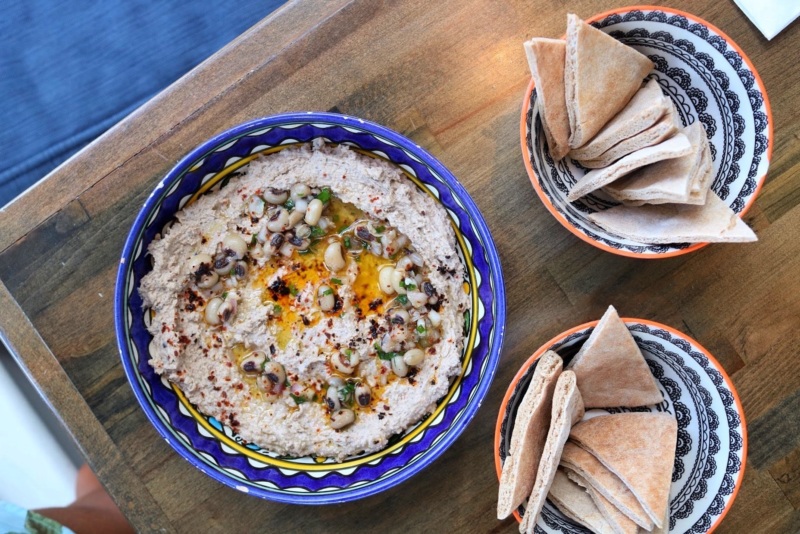
What’s the dining experience like at the restaurant?
The idea is that we want people to see it as a little respite from the rest of their lives, where they can bring a community together. There’s a beautiful garden. We’ve had first birthday parties; we’ve had elopement dinners. We’ve had friends just getting together after not seeing each other because of COVID. It’s all about that gathering.
We talk about our menu as being New American prepared by new Americans. Our black-eyed pea hummus, which has been on our menu since day one, is a great example. It’s something that is very accessible and understandable to our students, many of whom come from cultures where there’s some dip that is analogous to hummus. And it’s black-eyed peas because our culinary director and the person who designs our menu, chef Alex Harris, is really inspired by the flavors of the South.
Once a month we have a graduation dinner. Our students take over the menu, and it’s a ticketed dinner with a multi-course tasting menu. And each student gets to decide on the dishes that they want to prepare and present as an extension of who they are and what they want to be feeding us.
Our regular menu changes on a quarterly basis and with each of those seasonal changes, that’s where we think back on what items showed up on a graduation dinner menu and that we want try as a special, because it was just so delicious, and we want more people to taste it. That’s both really fun for our diners, but also nice for our students to feel like they’re leaving a lasting mark long after they graduate and begin their own careers.
How has the program supported the broader refugee community?
It’s an interesting question, because part of how we think about our work is, that there’s a huge refugee crisis globally. We’re talking about more than 70 million people around the world. And so we really take the approach that making a difference for individuals ripples out to support their families and that ripples out to support their community and that ripples out beyond that. And that’s how we can make a change, even if it’s not on that massive global scale.
Fundamentally, a big piece of the refugee crisis is driven by the fact that people forget that when we’re talking about refugees, we’re talking about people just like them. And so what I think we’ve been able to do beyond just the individuals and their families, is that we get to change a conversation around what it means to be a refugee when you’re coming to Emma’s Torch and having a delicious meal.
Well, it just so happens that the people who made that meal are refugees, and wouldn’t you want to welcome more of them in here? And when our students are placed in a kitchen, it’s not just about the student, it’s about the kitchen and how it changes. Everybody in that kitchen now has an individual [and personal] point of reference for this larger-scale problem. That’s something, that we hope can have a ripple effect beyond the individuals that we work with.
Can you share a student’s success story that really touched you?
We’ve had at this point, something like 150 graduates and each of them have their special spot in my heart and have their own stories. Some of our students have gone on to have careers with Union Square Hospitality Group, the Marlow Collective (Marlow & Sons, Diner, Roman’s, Achilles Heel, etc.), Olmsted, and Sahadi’s.
A couple of months ago, one of our graduates reached out — he graduated maybe three years ago — and he was telling us that he just got promoted. He’s a sous chef now, and he was walking with his boss and a couple of co-workers, and they walked by Emma’s Torch. His boss turned to somebody standing next to him and said, “I don’t know if you know about Emma’s Torch, but we’ve hired our best employees ever from them.” And our former student was just so proud.
Emma’s Torch
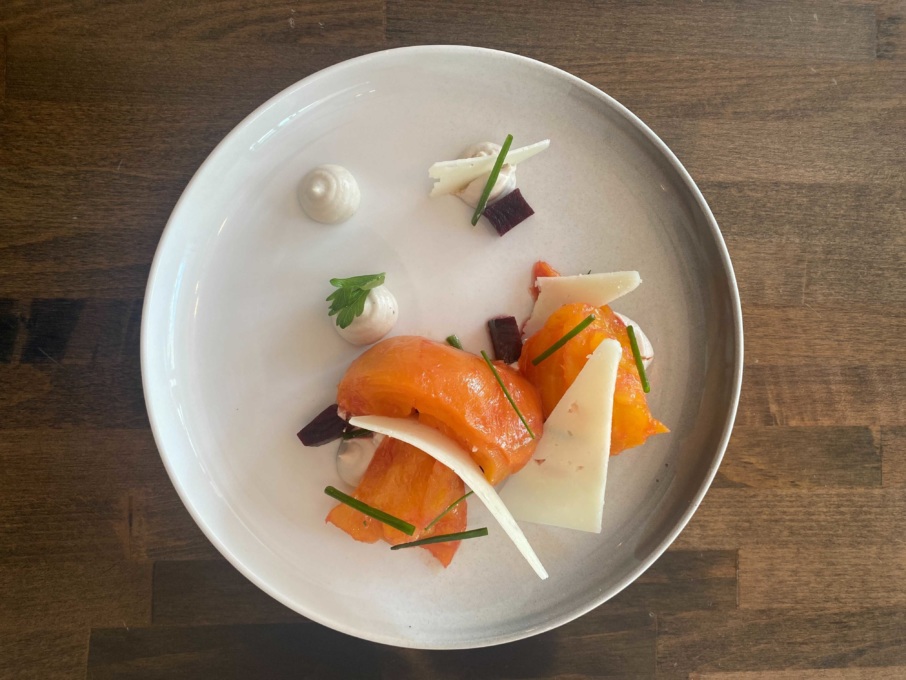
Address: 345 Smith Street, Brooklyn
Hours: 5:30 to 9 p.m. on Thursdays and Fridays. 11 a.m. to 3 p.m. and 5:30 to 9 p.m. on Saturdays. 11 a.m. to 3 p.m. on Sundays.
Recommended Dishes: black-eyed pea hummus ($9) and shakshuka ($16)
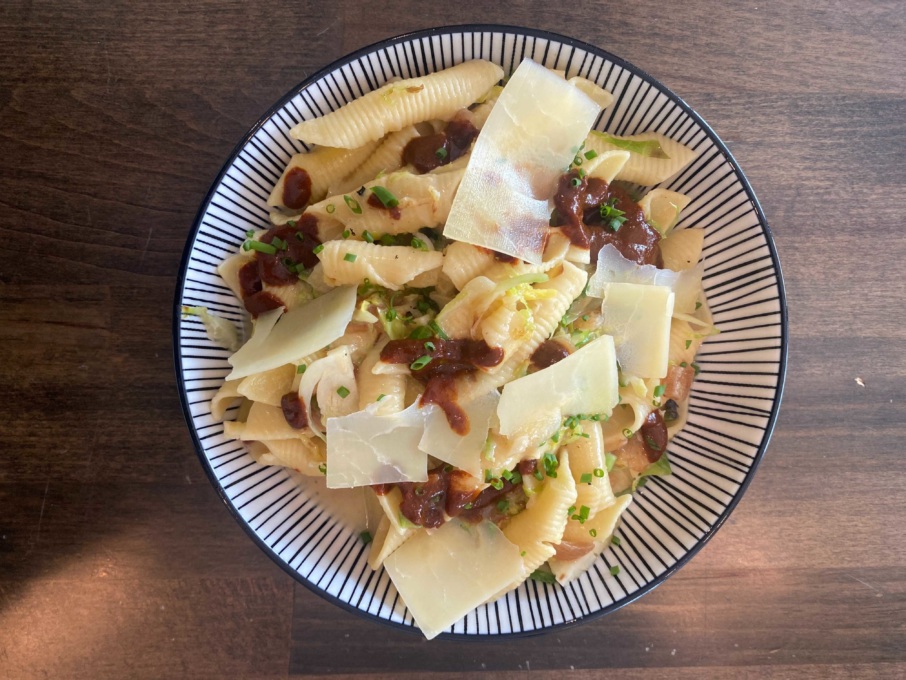
Best For Dining With: Friends and family
Seats: 30
Reservations: Reservations accepted up to 30 days in advance. Walk-ins are welcome.
Shana Clarke is an award-winning wine, sake, and travel writer whose work has appeared in Saveur, Fortune, CNN Travel, NPR, Wine Enthusiast, Hemispheres, and Fast Company, among others. Her forthcoming book, 150 Vineyards You Need to Visit Before You Die, will be published this fall. Follow her on Instagram and Twitter. Follow Resy, too.










